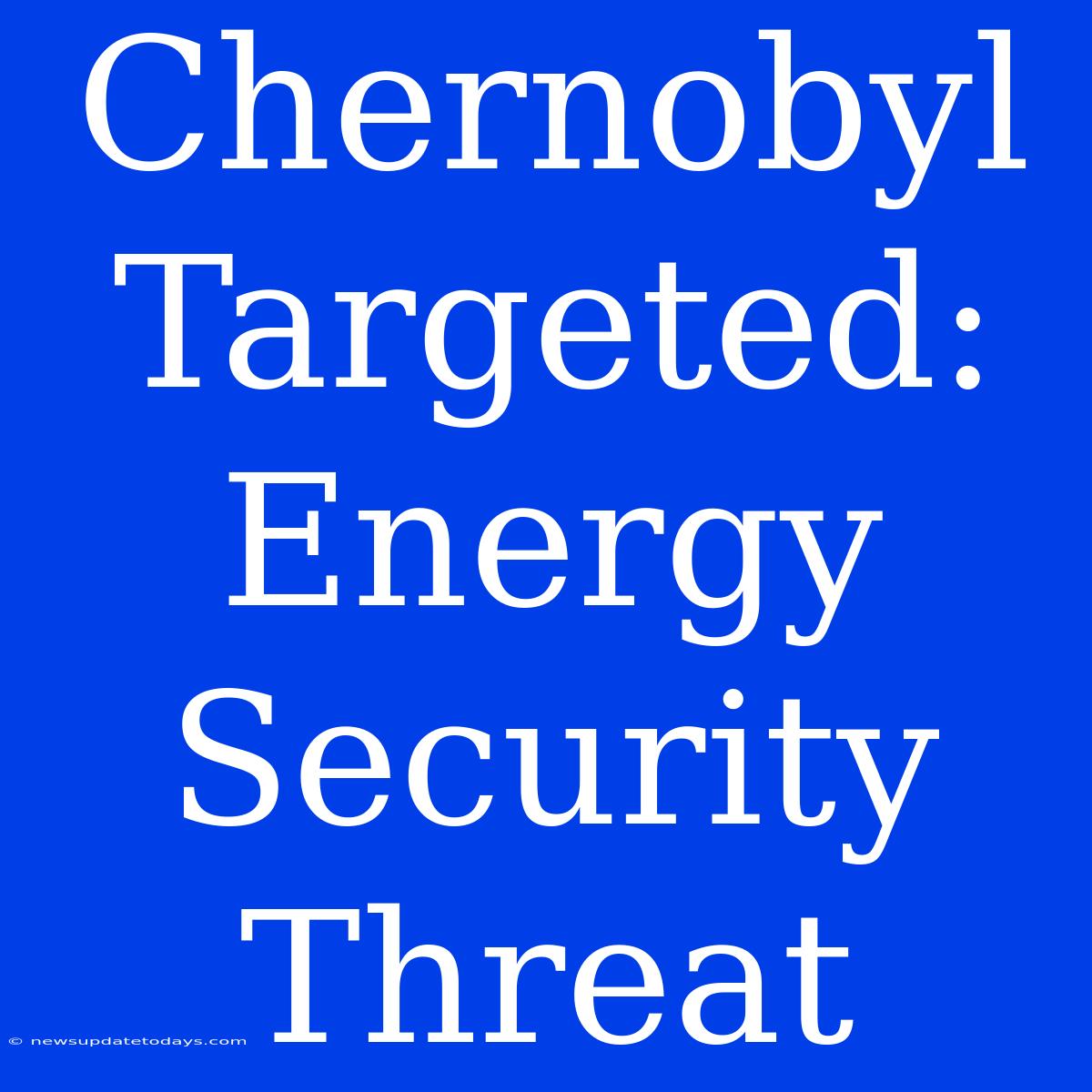Chernobyl Targeted: An Energy Security Threat
The recent events surrounding the Chernobyl nuclear power plant highlight a chilling reality: critical infrastructure, even decommissioned ones like Chernobyl, are increasingly vulnerable to energy security threats. This isn't just about the immediate impact of damage; it's about the ripple effect on global energy stability, public health, and geopolitical stability.
The Vulnerability of Critical Infrastructure
The attack on the Chernobyl Exclusion Zone, though seemingly isolated, underscores a broader vulnerability. Power plants, pipelines, and other energy infrastructure are often seen as easy targets in times of conflict. Their disruption can have devastating economic and social consequences. The deliberate targeting of Chernobyl, a symbol of nuclear disaster, carries a symbolic weight that transcends the immediate damage. It sends a message about the willingness to use energy infrastructure as a weapon of war.
Beyond the Physical Damage: The Long-Term Impact
The damage to Chernobyl, however limited, represents a serious setback for environmental monitoring and nuclear safety. The long-term consequences of disrupting the site's monitoring systems are unclear, but they could lead to unforeseen environmental contamination and health risks. This raises concerns about the broader impact of such attacks on long-term energy security, as the disruption to monitoring and management of nuclear facilities jeopardizes international safeguards and cooperation.
Geopolitical Implications and Energy Dependence
The targeting of Chernobyl also carries significant geopolitical implications. It highlights the precarious nature of energy security in a world increasingly reliant on interconnected energy grids and international cooperation. Disruptions to energy supply chains, whether deliberate or accidental, can have significant economic repercussions, fueling instability and conflict. This dependence on vulnerable infrastructure exposes nations to blackmail and coercion, demanding robust strategies for energy diversification and resilience.
The Need for Enhanced Security Measures
Protecting critical energy infrastructure must be a top priority for nations worldwide. This requires a multi-faceted approach including:
- Strengthened physical security: Investing in enhanced physical security measures at energy facilities, including improved surveillance, access control, and anti-sabotage measures.
- Improved cyber security: Protecting digital systems controlling energy infrastructure from cyberattacks, which can be just as disruptive as physical attacks.
- International cooperation: Strengthening international cooperation on energy security, including information sharing and joint response mechanisms.
- Energy diversification: Reducing reliance on single energy sources and suppliers to mitigate the impact of supply disruptions.
The attack on Chernobyl serves as a stark warning. Ignoring the vulnerability of our energy infrastructure carries immense risks. Proactive measures are essential to safeguard energy security and prevent future crises. The consequences of inaction could be catastrophic.

